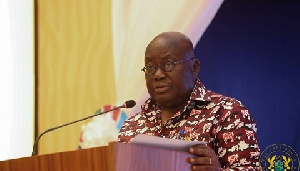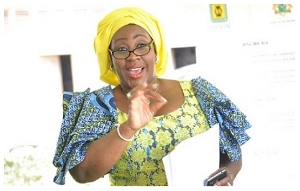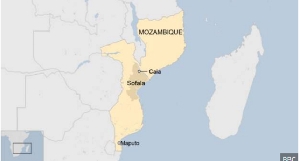General News of Saturday, 8 December 2018
Source: starrfmonline.com
My generation can achieve dreams of our forefathers – Akufo-Addo
President Akufo-Addo says the current generation of Africans have a unique opportunity to achieve the united, totally independent and prosperous Africa that their forefathers dreamt and fought for at the peril of their lives.
Addressing the All-Africa People’s Conference at its 60th anniversary celebration at the Bank of Ghana Auditorium, University of Ghana under the theme: “Africa Must Unite”, President Akufo Addo said, “Be that as it may, our generation has an opportunity to rededicate ourselves towards attaining the twin goals of guaranteeing the liberties and freedoms of the African people and eradicating mass poverty in Africa”.
According to the President, the process of rededicating involves several policy factors that the African people have to give consideration to. “It involves policy for significant investments in education at all levels. It involves policy for the structural transformation of Africa’s raw materials producing and exporting economies into industrial value adding economies that can trade in products in the global marketplace at the high end of the value chain”. The President added that it will also involve “policy that would draw a clear map for the political and economic integration of the whole continent to enable us maximize our potential and deal with the outside world on an equal footing.”
“These are our critical challenges, but ones we have to meet if at long last we are to expliot Africa’s vast potential and enormous wealth for the benefit of our peoples and not as its been the norm in our history, for the benefit of peoples outside our continent,” the President noted.
Confidence in Africa
President Akufo-Addo expressing his confidence in the ability of the current African generation to totally and truly emancipate the continent, and quoting Ghana’s first President, Dr. Kwame Nkrumah, who once observed “Africa could become one of the greatest forces for good in the world. Built not in fear, envy and suspicion nor one at the expense of others but founded on hope, trust, friendship and directed to the good of all mankind;” said he is confident that, “we can achieve this Africa which our forefathers and foremothers dreamt of and for which some paid the ultimate sacrifice. If we work together, we can do it”.
The All-African Peoples’ Conference
The All-African Peoples’ Conference (AAPC) was partly a corollary and partly a different perspective to the modern Africa states represented by the Conference of Heads of Independent Africa States. The All-Africa Peoples Conference was conceived to include social groups, including ethnic communities and anti-colonial political parties and African organizations such as labor unions and other significant associations in the late 1950s and early 1960s both in Africa and the Diaspora such as Europe, North America and South America.
The All-Africa Peoples Conference was conceived to represent the position that Africa should be returned to the peoples and groups, such as ethnic communities, from whom it was grabbed by colonialism. The idea was mooted in Accra in April, 1958, by John Kale from Uganda. This was at the end of the first African Heads of State Conference in Accra, Ghana in March, 1958. John Kale, then operating from exile in Egypt, who was one of the organizers of the first African Heads of State Conference, was already the initiating secretary (and later Chairman) of the African Liberation Committee, the Africa Executive of Afro-Asian Solidarity which had its secretariat in Cairo and shortly after the Africa representative on the World Peace Council on which he was the Vice President.
The first All-Africa Peoples Conference was attended by delegates from independence movements in areas still under European colonial rule, as well as by delegates from the independent African countries, including representatives of the governing parties of some of those countries. In the Conference’s own words, it was open to “all national political parties and national trade union congresses or equivalent bodies or organizations that subscribe to the aims and objects of the conference.” The Conference met three times: December, 1958, January, 1960, and March, 1961; and had a permanent secretariat with headquarters in Accra. Its primary objectives were independence for the colonies; and strengthening of the independent states and resistance to neocolonialism.











